 Dunkirk (2017)
Directed by Christopher Nolan
Rated PG-13
Reviewed by James Rosario on July 27, 2017
Dunkirk (2017)
Directed by Christopher Nolan
Rated PG-13
Reviewed by James Rosario on July 27, 2017
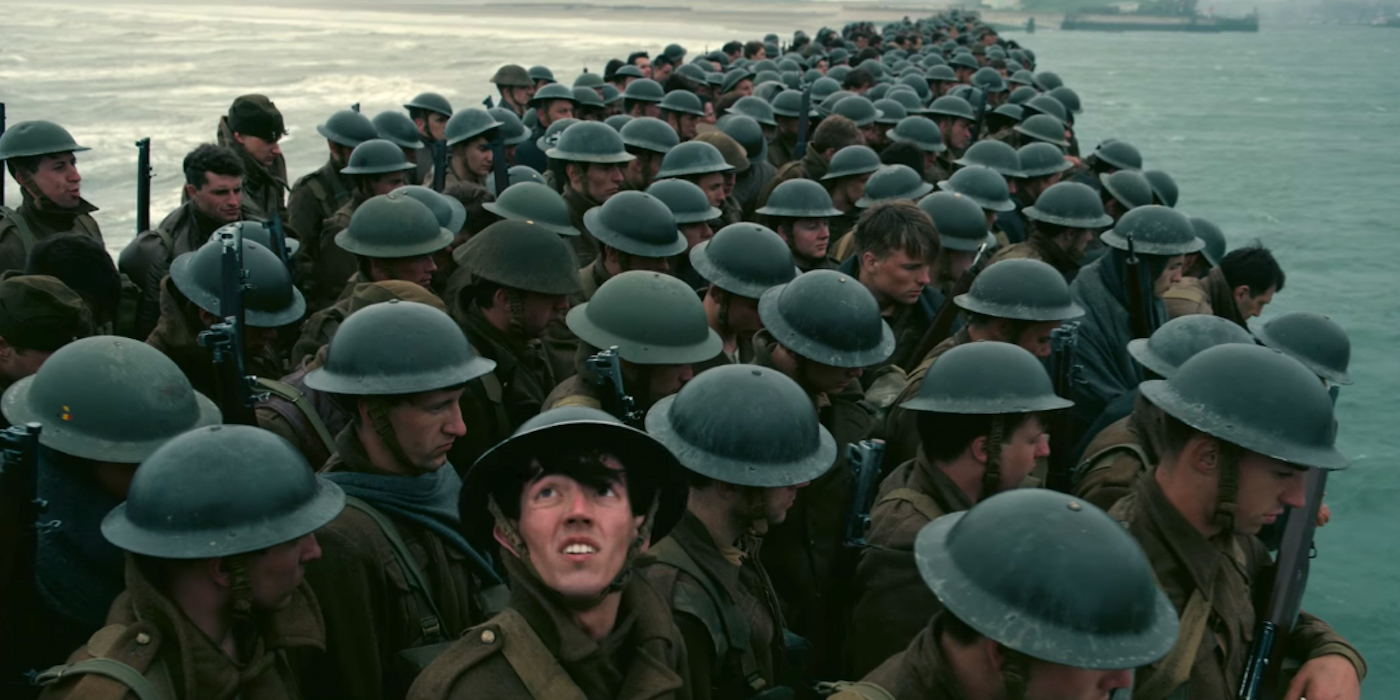
There are those out there who are naysaying and nitpicking Christopher Nolan’s latest effort,
Dunkirk. I’m not one of them. “The fragmented time structure serves no narrative purpose,” they’ll say. “It has no character development,” they’ll say. “Better war movies have been made so what’s the point?” they’ll say. And on and on. These criticisms aren’t necessarily wholly off the mark, but they are blown out of proportion, and fail to take into consideration what the film does achieve. It’s a unique entry in a genre that often gets bogged down with dime-store philosophy, and a false “realism” (which generally amounts to nothing more than too much blood and flying body parts). The critical complaints against
Dunkirk are exactly what sets it apart.
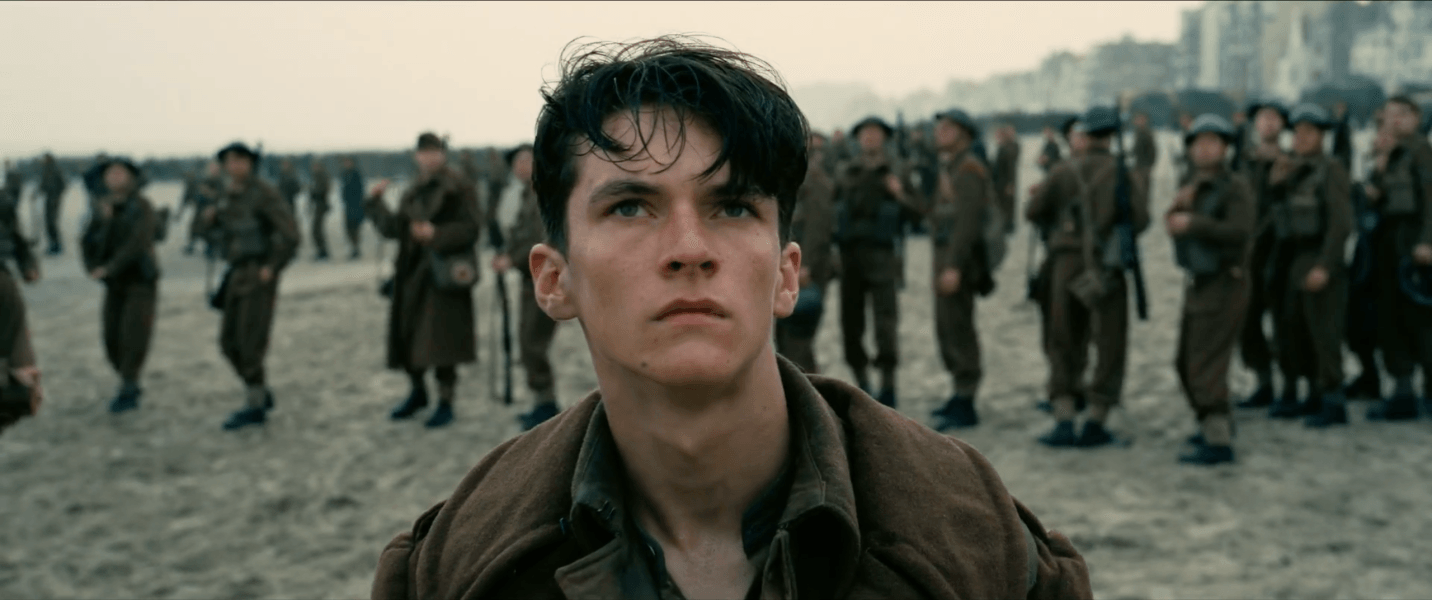
First, let’s tackle the multiple-timeline story structure. I will admit, this is what dropped the film from five stars to four-and-a-half stars for me. Not because it “served no purpose,” as some would say, but because for a very short time, I caught myself trying to figure out how the storylines would converge rather than paying attention to what was on the screen. It took me out of the film (albeit very, very briefly).
Dunkirk takes place in three segments: Land, Sea, and Air, with each having their own time signatures. The Land segment takes place over the course of one week, the Sea over one day, and Air in one hour. These three timelines eventually meet up, offering insight into the events that have taken place in the others.
The goal is to rescue 400,00 British, French, and Belgian troops from the beaches of Dunkirk, France, which has been surrounded by German troops. The British Navy can’t afford to send any more warships to aid in the rescue, as the German U-Boats are easily sinking them in the channel. Additionally, only three Spitfire fighter planes can be spared to protect both the boats from German bombers, as well as the troops on the beach from German strafing.
The Navy has called on civilians to aid in the rescue. Only 26 miles from English shores, hundreds of private boats set sail to help in the effort. Speaking strictly from a historical standpoint, experts believe that had the soldiers not been evacuated when they had, World War II may have ended quite differently.
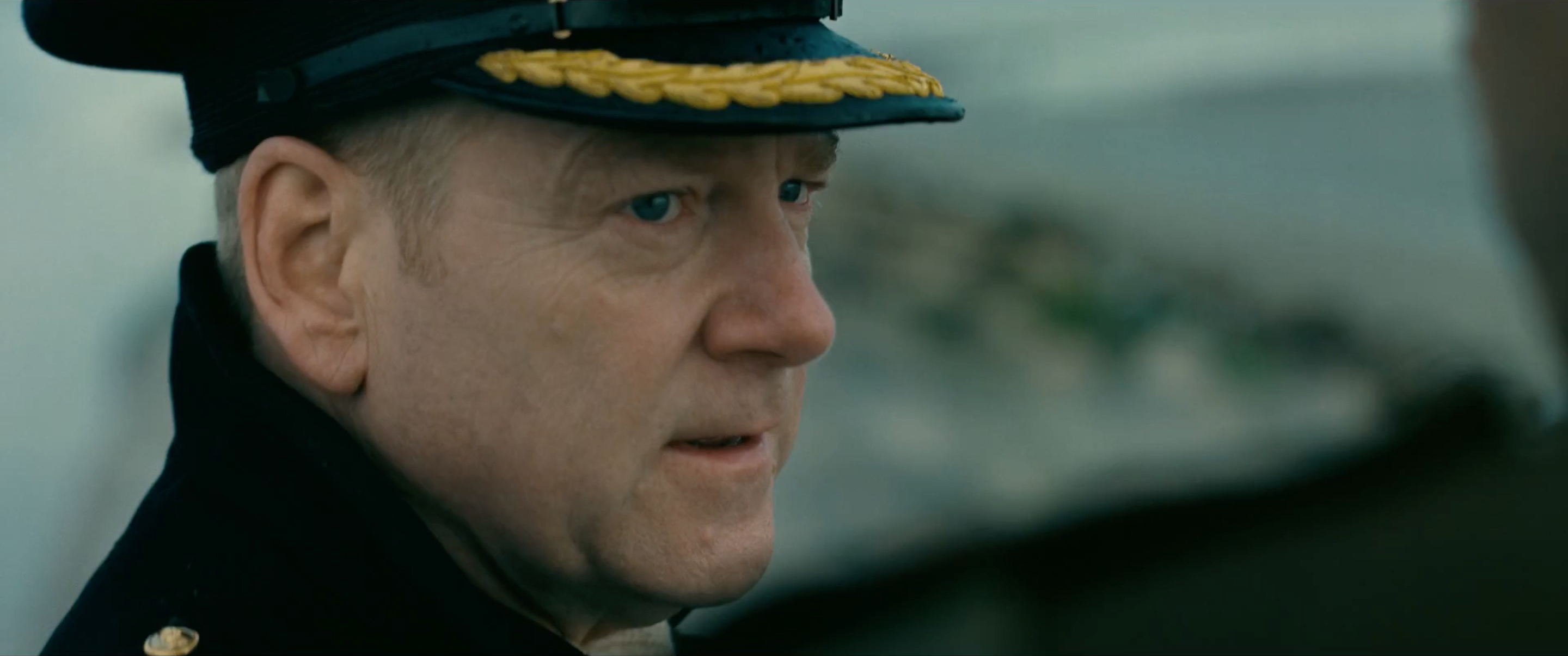
Could the story have been told in a more linear style? Probably, but it wouldn’t have been nearly as interesting. We wouldn’t have seen the civilian vessels until halfway through the movie, and the amazing aerial dogfights wouldn’t have shown up until the end. Instead, we are treated to a constant state of carefully metered intensity that doesn’t let up. The stories build off each other in a way that enhances each one. They’re layered, as each action in one sets up a plot point in another. Nolan’s films often feature elements of time distortion or manipulation, but this one was perhaps his riskiest. It plays out nicely, though, working (almost) perfectly.
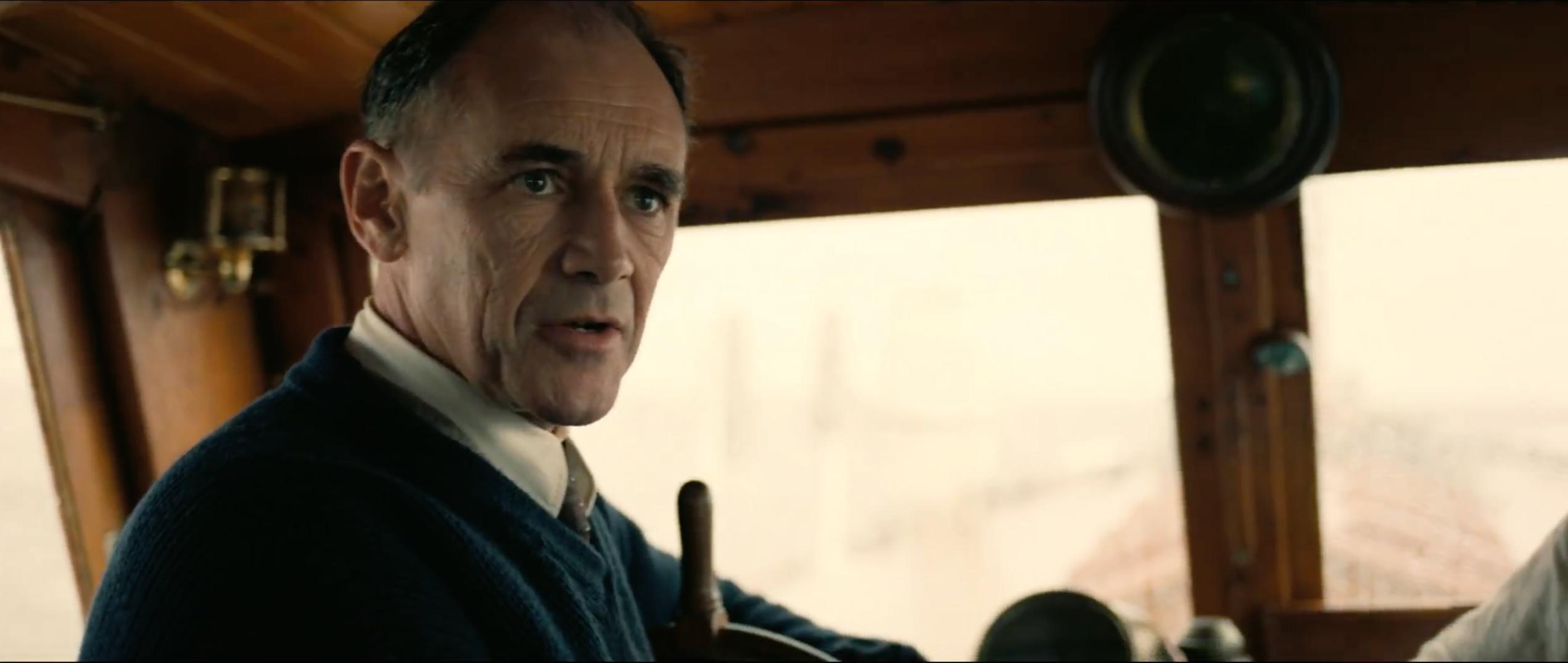
Next, some critics and viewers are bothered that there is a lack of character development. It’s true that many of the characters don’t even have names, and that the sparse dialogue that is present does little to clue us in on motivations or back stories, but this is a plus for me. Personally, I don’t need my hand held during a film. I don’t need to know every aspect of every character. The pilots dogfight because that’s what they do. The civilians risk their lives because they know Germany will invade England next. The soldiers on the beach try to escape because they’ve been through hell and are in survival mode. I would argue that the lack of definable characterization is something that helps the film succeed, not the opposite. One week, one day, one hour. That’s what we’re given, and that’s enough. Sentimentality may very well have bogged the whole thing down.
By the way, the acting is superb. The entire cast is well chosen and executed their roles with amazing verisimilitude. Sometimes, facial expressions and actions, rather than words, can speak volumes. There might not have been a lot for the Academy to latch on to, but I’ll take what this cast gives over silly Oscar bait posturing any day of the week.
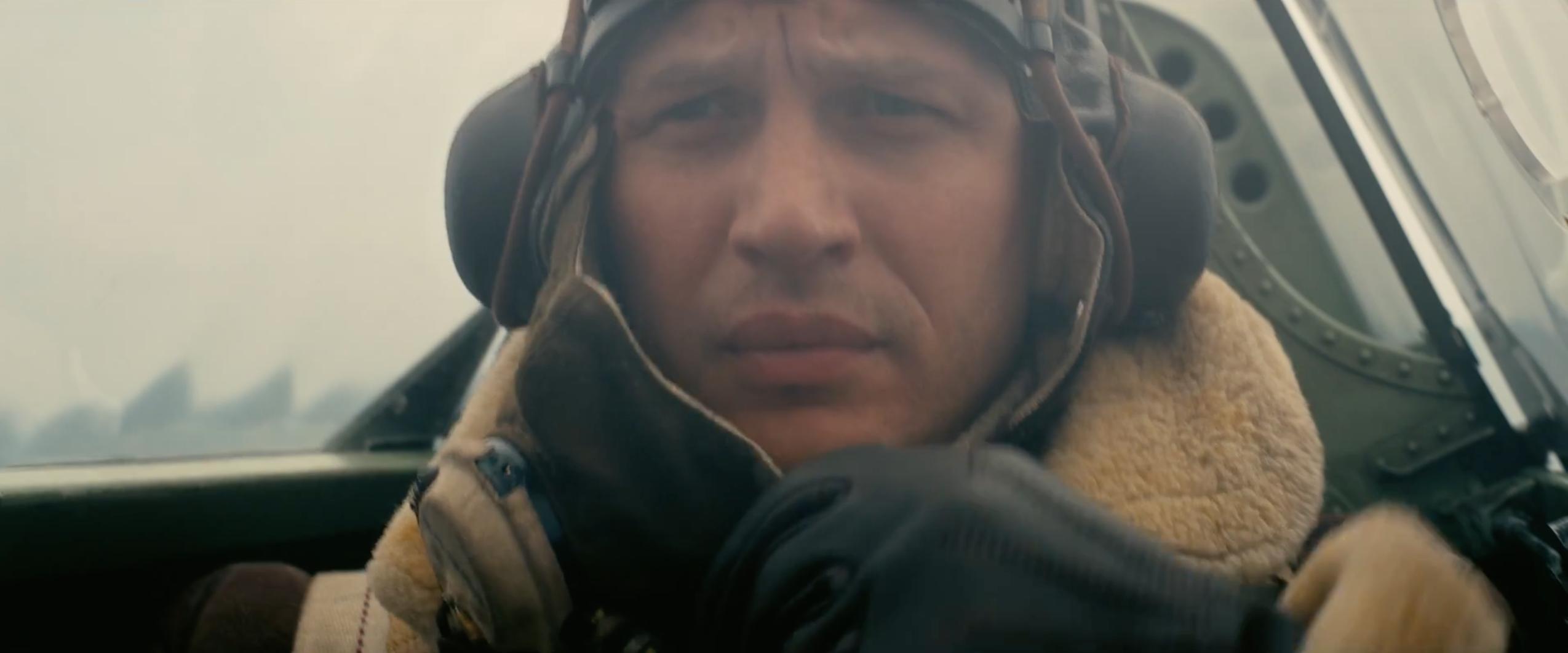
Comparisons to
Saving Private Ryan (1998) are sure to be made, which is fine. They are different films for sure, but the intensity of both is very visceral, and very heart pounding.
Dunkirk lacks the gore of
Ryan (which is totally fine with me), but makes up for it with nonstop grit and gumption. And I mean nonstop. Hans Zimmer’s score keeps you on the edge of your seat throughout with a soundscape that doesn’t let up, right down to the ticking of a pocket watch to remind us that life is short so you’d better get moving. It’s a haunting, mesmerizing, inspiring, and terrifying piece of music that keeps the three timeframes locked together, and our characters alive (some of them anyway).
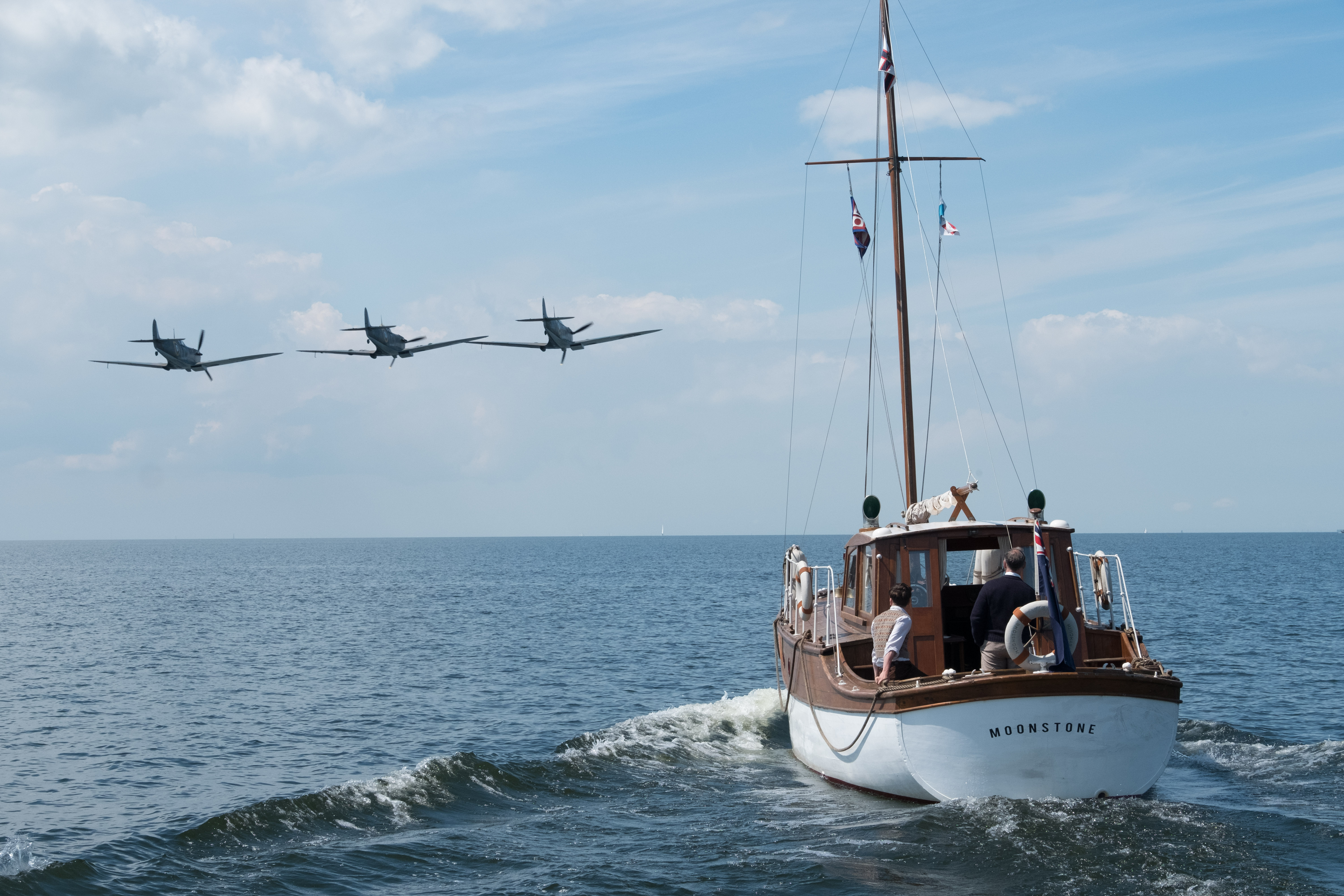
So how does
Dunkirk measure up when compared to the existing pantheon of war films? Pretty good, I’d say. Are there better movies that deal with the horror and chaos of war? Sure, but I’d like you to sit down and really think about what they are, and why. What Nolan has crafted is much more than a footnote in the genre, it’s an achievement on par with the best, and it belongs in the debate as to “What’s the best film about war ever made?”
Dunkirk is playing at the
Grail Moviehouse, and other Asheville theaters.
For more film reviews, plus record reviews, podcasts, and more, please visit
THE DAILY ORCA.